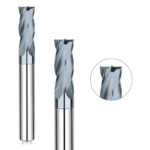When considering contact lenses, skipping the professional fitting and purchasing them might be tempting. However, ensuring they fit correctly is crucial for eye health and comfort. A lens fitting is a formality and a vital process to ensure they are right. Skipping this step can lead to uneasiness and potential eye problems that could easily be avoided with a proper fitting.
A contact lens fitting is essential to finding the perfect one for your eyes. During this process, an optometrist evaluates the curvature and size of your eyes, ensuring they fit comfortably and correctly. This step helps avoid issues such as dryness, irritation, or poor vision from ill-fitting ones. Investing the time in a professional fitting increases the likelihood of a better overall experience with them.
The Importance of a Professional Fitting
Optometrists are trained to conduct detailed assessments that go beyond a simple measurement. They consider factors like eye health, pre-existing conditions, and how your eyes react to different lenses. This comprehensive approach ensures the lenses fit well and provide the best possible vision correction. Skipping this step can mean overlooking crucial adjustments that improve your comfort and visual clarity.
Preventing Discomfort and Health Issues
Wearing lenses that don’t fit properly can lead to significant discomfort. Issues like dryness, irritation, or even corneal infections can arise from poor fitting. A professional fitting helps minimise these risks by ensuring that the lenses you choose match your eyes’ specific contours and needs. Properly fitted, one can make a significant difference in avoiding these uncomfortable and potentially serious issues.
Achieving Optimal Vision Correction
One primary reason is to achieve the best vision correction. Even minor deviations in the fit can impact your visual acuity. An optometrist ensures they are the right prescription and positioned correctly on your eye for optimal performance. This precision helps you get the clearest vision possible.
Inaccurate fitting can lead to discomfort and blurred vision, which diminishes the benefits of wearing contact lenses. A precise fitting aligns the lenses perfectly, enhancing visual clarity and ensuring you get the full benefit from your prescription.
Customising Your Lenses to Your Lifestyle
Every individual has unique needs when it comes to contacts. Some people may need more durable lenses for active lifestyles, while others may require them to address specific vision issues like astigmatism. Customisation allows an optometrist to recommend one that suits your needs and activities. This ensures that they perform well daily, providing comfort and functionality.
Ensuring the Longevity of Your Lenses
Adequately fitted contact lenses are more likely to last longer and maintain their quality. A fitting ensures they align correctly with your eyes, which helps prevent displacement and degradation. This attention to detail can contribute to overall longevity, making your investment in eye care more worthwhile. Additionally, being adequately fitted reduces the need for frequent replacements, saving you money in the long run.
Understanding the Fitting Process
The fitting process typically involves several steps. Your optometrist will assess your cornea’s size and shape and how different lenses interact with your eye. You may also be asked to wear a trial one to determine how well it fits and how it affects your vision and comfort. This thorough approach helps identify the best type and fit for your needs.
A contact lens fitting with your optometrist ensures comfort, health, and optimal vision. Skipping this vital step can lead to discomfort and potential eye issues that could be easily avoided with proper fitting. Investing in this process will lead to a more pleasant and practical experience, allowing you to enjoy clear vision and comfort daily







